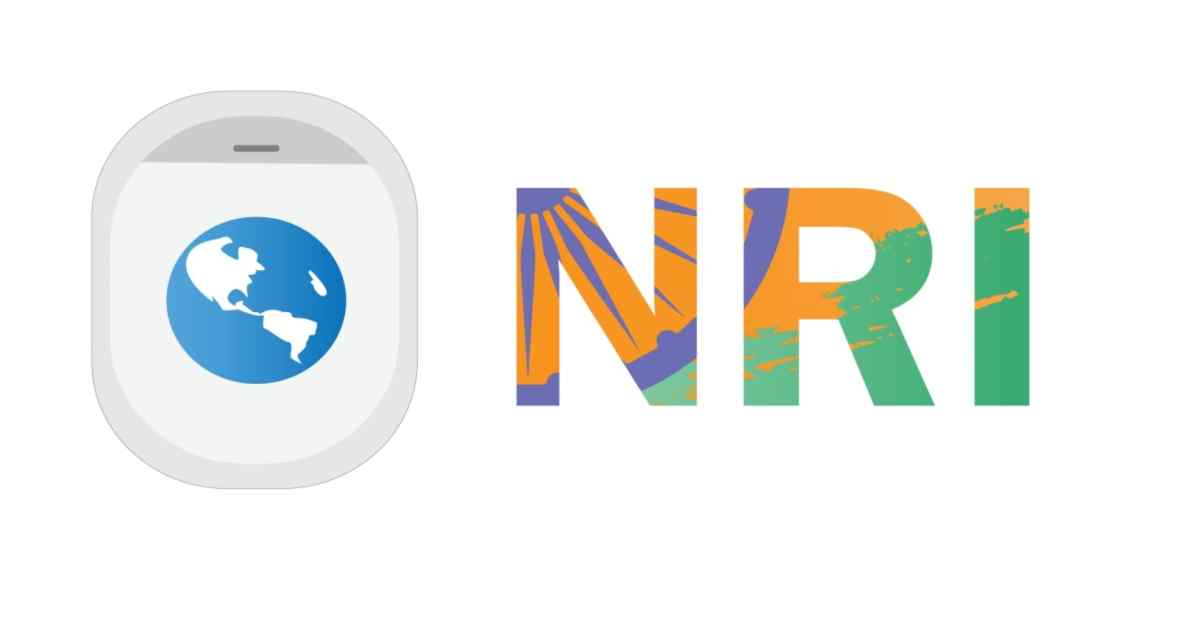Table of Contents
Quality Service Guarantee Or Painting Free

Get a rental agreement with doorstep delivery

Find the BEST deals and get unbelievable DISCOUNTS directly from builders!

5-Star rated painters, premium paints and services at the BEST PRICES!
Loved what you read? Share it with others!


Submit the Form to Unlock the Best Deals Today
Help us assist you better
Check Your Eligibility Instantly

Experience The NoBrokerHood Difference!
Set up a demo for the entire community
The NRI Lifestyle: Balancing the Good and the Bad
Table of Contents
The life of a Non-Resident Indian (NRI) is often portrayed as glamorous, with tales of financial success, international travel, and cultural immersion. However, beneath the surface lies a complex reality of both opportunities and challenges. In this blog, we get into the details of the NRI lifestyle, exploring the positives that draw individuals to distant shores, as well as the negatives that accompany life away from home.
The Good of NRI Lifestyle
Living as a Non-Resident Indian (NRI) offers a plethora of advantages and enriching experiences that contribute to a fulfilling and rewarding life abroad. From financial opportunities to cultural immersion, the NRI lifestyle encompasses various positives that attract individuals to explore opportunities beyond their home country. Here are some of the key benefits:
Financial Opportunities
Higher Earning Potential in Foreign Countries
- When compared to their home countries, NRIs often find that they have a higher earning potential in foreign countries. This can be attributed to various factors such as stronger economies, higher demand for skilled professionals, and more competitive salaries.
- Many NRIs are able to command higher salaries for their expertise and qualifications, allowing them to accumulate wealth at a faster rate than they would have been able to back home.
- Additionally, some countries offer tax incentives or lower tax rates for foreign residents, further increasing the disposable income of NRIs and providing them with greater financial stability.
Access to Better Investment Opportunities
- Living abroad provides NRIs with access to a wider range of investment opportunities that may not be available in their home countries.
- Foreign markets often offer diverse investment options, including stocks, bonds, real estate, and mutual funds, allowing NRIs to diversify their investment portfolios and potentially achieve higher returns.
- Furthermore, some countries have more stable economies and stronger legal frameworks, which can mitigate investment risks and provide NRIs with greater peace of mind when investing their hard-earned money.
Exposure to Diverse Cultures
Immersion in Multicultural Environments
- Living abroad exposes NRIs to a rich tapestry of cultures, languages, and traditions, fostering a greater appreciation for diversity and inclusivity.
- In multicultural environments, NRIs have the opportunity to interact with people from all walks of life, exchange ideas, and broaden their perspectives.
- This exposure to diversity not only enhances cultural awareness but also promotes tolerance, empathy, and understanding, ultimately enriching the personal and professional lives of NRIs.
Opportunity to Learn New Languages and Traditions
- Living in a foreign country provides NRIs with a unique opportunity to learn new languages and immerse themselves in different cultural traditions.
- Language immersion programs, cultural festivals, and community events offer NRIs the chance to expand their linguistic skills and deepen their understanding of local customs and rituals.
- By embracing new languages and traditions, NRIs can forge stronger connections with their host communities, break down cultural barriers, and truly experience the richness of global diversity.
Enhanced Quality of Life
Access to Superior Healthcare Facilities
- Many foreign countries boast world-class healthcare systems with state-of-the-art facilities, advanced medical technologies, and highly trained healthcare professionals.
- NRIs residing abroad often benefit from access to comprehensive health insurance coverage, preventive care services, and specialised medical treatments that may not be readily available in their home countries.
- This access to superior healthcare can significantly enhance the quality of life for NRIs and their families, providing them with peace of mind and reassurance in times of illness or medical emergencies.
Improved Infrastructure and Amenities
- Foreign countries typically have well-developed infrastructure and modern amenities that contribute to a higher standard of living for NRIs.
- From efficient public transportation systems and well-maintained roads to modern housing complexes and recreational facilities, NRIs enjoy access to a wide range of amenities that enhance their daily lives.
- Improved infrastructure and amenities contribute to greater convenience, comfort, and overall satisfaction for NRIs, allowing them to enjoy a higher quality of life abroad.
The Challenges of NRI Lifestyle
While the NRI lifestyle offers a multitude of opportunities and enriching experiences, it also comes with its fair share of challenges and hardships. From emotional struggles to legal complexities, NRIs often face obstacles that can impact their well-being and sense of belonging. Here are some of the key challenges:
Quality Service Guarantee Or Painting Free

Get a rental agreement with doorstep delivery

Find the BEST deals and get unbelievable DISCOUNTS directly from builders!

5-Star rated painters, premium paints and services at the BEST PRICES!
Homesickness and Cultural Disconnection
- Struggles with Adjusting to a New Culture: Moving to a new country often entails adapting to unfamiliar customs, social norms, and ways of life. NRIs may find it challenging to assimilate into a different culture, leading to feelings of disorientation and cultural disconnection.
- Feelings of Isolation and Longing for Home: Being away from familiar surroundings, friends, and family members can evoke feelings of loneliness and homesickness. NRIs may long for the comfort of home and struggle to find a sense of belonging in their new environment.
Legal and Administrative Challenges
- Complexities of Managing Finances and Assets Across Borders: NRIs face the daunting task of managing finances and assets across international borders, navigating complex tax laws, currency exchange rates, and investment regulations.
- Navigating Visa Regulations and Residency Requirements: Securing residency status and complying with visa regulations can be a bureaucratic maze for NRIs. From renewing visas to obtaining work permits, navigating the legalities of residency in a foreign country can be time-consuming and stressful.
Family and Social Obligations
- Balancing Relationships with Family and Friends Back Home: Living abroad often means being separated from loved ones back home, leading to challenges in maintaining relationships and staying connected. NRIs may struggle to strike a balance between their new life abroad and their obligations to family and friends.
- Missing Out on Important Milestones and Gatherings: Distance can often result in NRIs missing out on significant life events, such as weddings, birthdays, and family gatherings. The inability to be physically present for these occasions can lead to feelings of guilt, regret, and a sense of detachment from loved ones.
Coping Strategies for the NRI Lifestyle
Living as a Non-Resident Indian (NRI) comes with its own set of challenges, from homesickness to cultural adaptation and legal complexities. However, adopting effective coping strategies can help NRIs navigate these challenges with resilience and grace. Here are some key strategies:
Building a Support Network
Connecting with Fellow NRIs and Expatriates
- Reach out to fellow NRIs and expatriates in your local community or workplace. Join expat groups, social clubs, or online forums where you can connect with individuals who share similar experiences and understand the challenges of living abroad.
- Building relationships with fellow NRIs provides a sense of camaraderie, support, and understanding. Sharing experiences, advice, and tips can help alleviate feelings of isolation and foster a sense of belonging in your new environment.
Seeking Support from Local Communities and Organisations
- Get involved in local communities and organisations that cater to expatriates and immigrants. These may include cultural centres, religious groups, or volunteer organisations that offer support services, social events, and networking opportunities.
- Engaging with local communities provides opportunities to make new friends, learn about the host culture, and access resources for personal and professional development. It can also provide a sense of connection and belonging in your adopted home.
Embracing Technology
Utilising Video Calls and Social Media
- Stay connected with loved ones back home through video calls, messaging apps, and social media platforms. Schedule regular virtual gatherings with family and friends to maintain close relationships and stay updated on important events.
- Virtual communication tools bridge the distance between NRIs and their loved ones, allowing for real-time interactions and meaningful connections despite geographical barriers.
Exploring Online Resources for Cultural Enrichment and Language Learning₹
- Take advantage of online resources for cultural enrichment and language learning. Join language exchange programs, enrol in virtual cultural classes, or participate in online forums dedicated to cultural exchange.
- Engaging in cultural and language activities online helps NRIs stay connected to their roots, broaden their horizons, and deepen their understanding of different cultures. It also provides opportunities for personal growth and self-improvement.
Establishing a Work-Life Balance
Setting Boundaries to Prevent Burnout and Stress
- Establish clear boundaries between work and personal life to prevent burnout and maintain overall well-being. Set designated work hours, take regular breaks, and avoid overcommitting yourself to work-related tasks.
- Prioritise self-care and allocate time for relaxation, hobbies, and leisure activities. Engage in activities that bring you joy and fulfilment, whether it's exercising, reading, or spending time outdoors.
Prioritising Self-Care and Mental Health
- Make self-care a priority by practising mindfulness, meditation, or yoga to reduce stress and promote mental well-being. Take time to nurture your physical, emotional, and spiritual health through regular exercise, healthy eating, and adequate sleep.
- Seek professional support if you're struggling with mental health issues or feeling overwhelmed by the challenges of living abroad. Reach out to counsellors, therapists, or support groups for guidance and assistance in coping with the stresses of the NRI lifestyle.
Should You Go for the NRI Lifestyle?
Deciding whether to pursue the NRI (Non-Resident Indian) lifestyle is a deeply personal choice that depends on various factors, including individual circumstances, goals, and priorities. While the NRI lifestyle offers numerous opportunities for personal, professional, and cultural growth, it also comes with its fair share of challenges and sacrifices. Here are some considerations to help you determine if the NRI lifestyle is right for you:
- Career Opportunities: Consider whether moving abroad will enhance your career prospects and provide opportunities for professional growth and advancement. Assess the job market, industry demand, and potential for skill development in your chosen field.
- Financial Stability: Evaluate the financial implications of living abroad, including the cost of living, taxation policies, and potential earning potential. Determine whether you have the financial resources and stability to support yourself and your family in a new country.
- Cultural Adaptability: Reflect on your ability to adapt to new cultures, customs, and social norms. Consider whether you are open-minded, flexible, and willing to embrace diversity and multiculturalism.
- Family and Social Connections: Think about the impact of moving abroad on your relationships with family and friends. Consider whether you are prepared to be physically separated from loved ones and how you will maintain connections from afar.
- Legal and Administrative Considerations: Research the legal and administrative requirements of living abroad, including visa regulations, residency permits, and healthcare access. Determine whether you are willing to navigate bureaucratic processes and legal complexities in a foreign country.
- Personal Well-being: Reflect on your emotional resilience, coping mechanisms, and ability to manage stress and homesickness. Consider whether you have a support system in place and access to resources for mental health and well-being.
How NoBroker Makes Your NRI Lifestyle Easier?
Ultimately, the decision to pursue the NRI lifestyle should align with your values, aspirations, and long-term goals. Take the time to thoroughly assess your options, weigh the pros and cons, and seek advice from trusted advisors and mentors. Remember that the NRI lifestyle is a journey filled with both opportunities and challenges, and it's essential to make an informed decision that feels right for you and your loved ones.
Choosing to live as an NRI (Non-Resident Indian) is a big step with its own challenges and rewards. But with NoBroker, things get easier. NoBroker helps you find a home abroad without the hassle. It connects you with other expats, makes renting simple, and offers support along the way. So, as you start your NRI journey, let NoBroker be your friend, making life abroad a little simpler and a lot more enjoyable.

Frequently Asked Questions
NRI stands for Non-Resident Indian, referring to individuals of Indian origin who reside outside of India for employment, education, or other purposes.
The NRI lifestyle offers opportunities for financial prosperity, cultural enrichment, personal growth, and professional development. NRIs often enjoy higher earning potential, exposure to diverse cultures, access to superior infrastructure and amenities, and opportunities for career advancement abroad.
Challenges of the NRI lifestyle include homesickness, cultural disconnection, legal and administrative complexities, family and social obligations, and the need to adapt to new environments and social norms.
NRIs can cope with homesickness and cultural disconnection by building a support network, embracing technology to stay connected with loved ones, engaging in cultural activities, and seeking out community events and gatherings.
NRIs face legal and administrative challenges such as managing finances and assets across borders, navigating visa regulations and residency requirements, and complying with tax laws and international regulations.
Loved what you read? Share it with others!
Most Viewed Articles

Know About ICICI NRI Account: Document Required, Eligibility and Application Process in 2025
October 11, 2024
22433+ views

NRI Power of Attorney: Empowering Overseas Decision-Making
December 24, 2024
12696+ views

Best NRI Accounts in India 2025
December 20, 2024
10411+ views

NRE vs NRO Account: Understanding the Difference for NRIs
April 21, 2024
7252+ views

TCS on Foreign Remittance: Understanding Implications
May 10, 2024
4914+ views
Recent blogs in
Understanding NRO Account Taxation in India
January 15, 2025 by Simon Ghosh
Compare Long Term vs Short Term Property Investments for NRIs 2025
January 3, 2025 by Kruthi
NRI Property Registration Process: Know Eligibility and Required Documents for 2025
January 3, 2025 by Ananth
NRI Power of Attorney: Empowering Overseas Decision-Making
December 24, 2024 by Krishnanunni H M
Best NRI Accounts in India 2025
December 20, 2024 by Manu Mausam



Join the conversation!